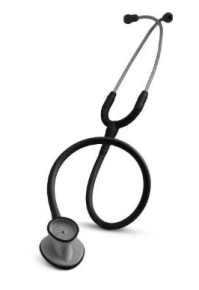The Centers for Medicare & Medicaid Services (CMS) has once again issued guidance reminding providers that federal law bars Medicare providers from billing a Qualified Medicare Beneficiaries (QMB) under any circumstances.
|
|
||||
|
The Office of Inspector General (OIG) recently published a final rule that implements OIG’s expanded statutory exclusion authority. The final rule included a number of provisions that impact providers and suppliers. Under the Affordable Care Act (ACA), providers and suppliers who bill for services furnished by an excluded or an unlicensed person are considered to have received and overpayment from Medicare which must be reported and returned within 60 days of “identifying” the overpayment (claims-based overpayment). New Jersey Medicaid recently reminded providers that a similar requirement for Medicaid and Medicaid Managed Care providers exists in New Jersey and will be enforced. The passage of the Patient Protection and Affordable Care Act (ACA) heralded a new era for provider enrollment and revalidation by enhancing provider and supplier screenings. The Centers for Medicare & Medicaid Services (CMS) now requires certain providers to be fingerprinted in order to continue participating in the Medicare program. Medicare contractors (MACs) have been The Centers for Medicare & Medicaid Services (CMS) views the enrollment process as an important gatekeeping tool for preventing fraud, waste and abuse. The passage of the Affordable Care Act (ACA) enhanced the ability of CMS to further this goal. Recently, the Office of the Inspector General (OIG) published a report analyzing the effectiveness of certain enhanced provider enrollment screenings. The Centers for Medicare & Medicaid Services (CMS) has once again proposed new rules which would enhance the screening requirements for providers and suppliers. The rule proposals would ratchet up the scrutiny on provider enrollments and toughen suspension and revocation penalties. The mission of the Medicaid Fraud Division (MFD) within the Office of the State Comptroller is to prevent, detect, audit and investigate fraud, waste and abuse by New Jersey providers and recipients. As we look forward to the New Jersey Medicaid Fraud Division 2015 work plan, we look back at the agency’s activities in 2014. The government’s authority to exclude practitioners from participation in Federal health care programs has expanded dramatically since program exclusions upon conviction first began back in 1977. In an attempt to address industry questions about the scope of exclusion in today’s regulatory climate, the Office of the Inspector General (OIG) issued an updated Special Advisory bulletin this past May. When a healthcare professional faces professional discipline the initial focus tends to be on getting through and beyond the proceeding. Healthcare professionals, however, should also be aware of the collateral consequences that may stem from a professional disciplinary action. |
||||

